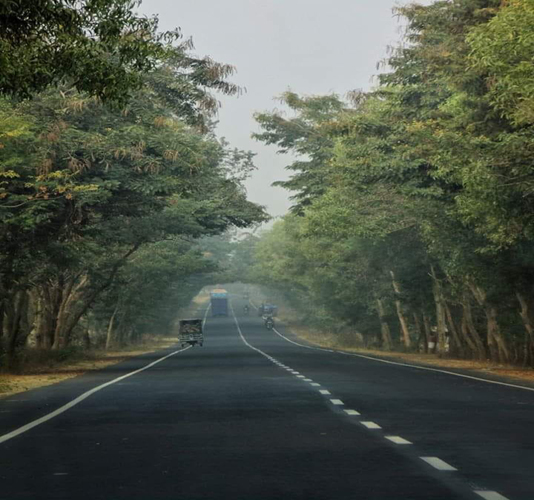RAJSHAHI, Jan 11, 2019 (BSS) – Infrastructure development projects are
contributing a lot towards uplifting living and livelihood condition of rural
population in the region.
The projects have widened the access to markets and economic opportunities
through boosting the connectivity of the rural people.
Projects implemented by Local Government Engineering Department (LGED)
accelerated the earnings side by side with ensuring access to basic services
like health and education of the rural poor.
The seven-year project titled “Sustainable Rural Infrastructure
Improvement” was implemented in 21 districts covering 140 upazilas under
Rajshahi, Rangpur and Khulna divisions at a cost of around Taka 989.73 crore
recently.
Rafiqul Islam, Additional Chief Engineer-in-Charge of LGED, told BSS here
that main thrust of the project was to increase rural income and to reduce
rural poverty through sustainable economic growth, social and gender
development and improving infrastructure in the project areas.
Around 678-km Upazila roads and 173-km union roads were upgraded as
bitumen standard to provide connectivity between agricultural production
areas and growth center markets.
Besides, 53.57-kilometer upazila roads and 18.16-kilometer union roads
were upgraded.
The rural road network ultimately promotes overall development of the
transportation system. Thereby, socio-economic condition of the rural people
has started elevating by providing assistance for higher agricultural
production and their marketing.
Cross drainage structures, such as bridges and culverts with a total
length of 4,500 meters were constructed. Provisions for road safety such as
road signs, delineators and bollards near the approach to the bridges and
reflectors added to tree trunks and provision of loading and unloading zones
were incorporated into the design of Upazila roads.
Roadside tree plantation programmes on the 320-kilometer improved roads
were implemented successfully that will ultimately help reduce carbon
emission at a substantial level and that is very important to face the
adverse impact of climate change in the region.
A total of 88 Growth Center Markets (GCMs) including creation of 50 women
markets were improved. The markets have various necessary privileges like
paved trading areas, sheds, improved water supply system, adequate drainage
and sanitation facilities and market offices.
The developed works would in fact contribute enormously to raise standard
of living of rural people in the remote villages besides further
strengthening the overall activities of local government bodies.
Indirect project benefits likely to facilitate poverty reduction are
increased in farm income, higher crop yields resulting from improvement in
the availability and use of fertilizer and other inputs.
Talking to BSS here, Abul Kashem, Chairman of Talanda Union Parishad under
Tanore Upazila, mentioned that the rural level improved infrastructures have
already started reducing transport cost, improving marketing system,
increasing production and marketing facilities of agricultural products which
are contributing a lot to socio-economic development in the region.



